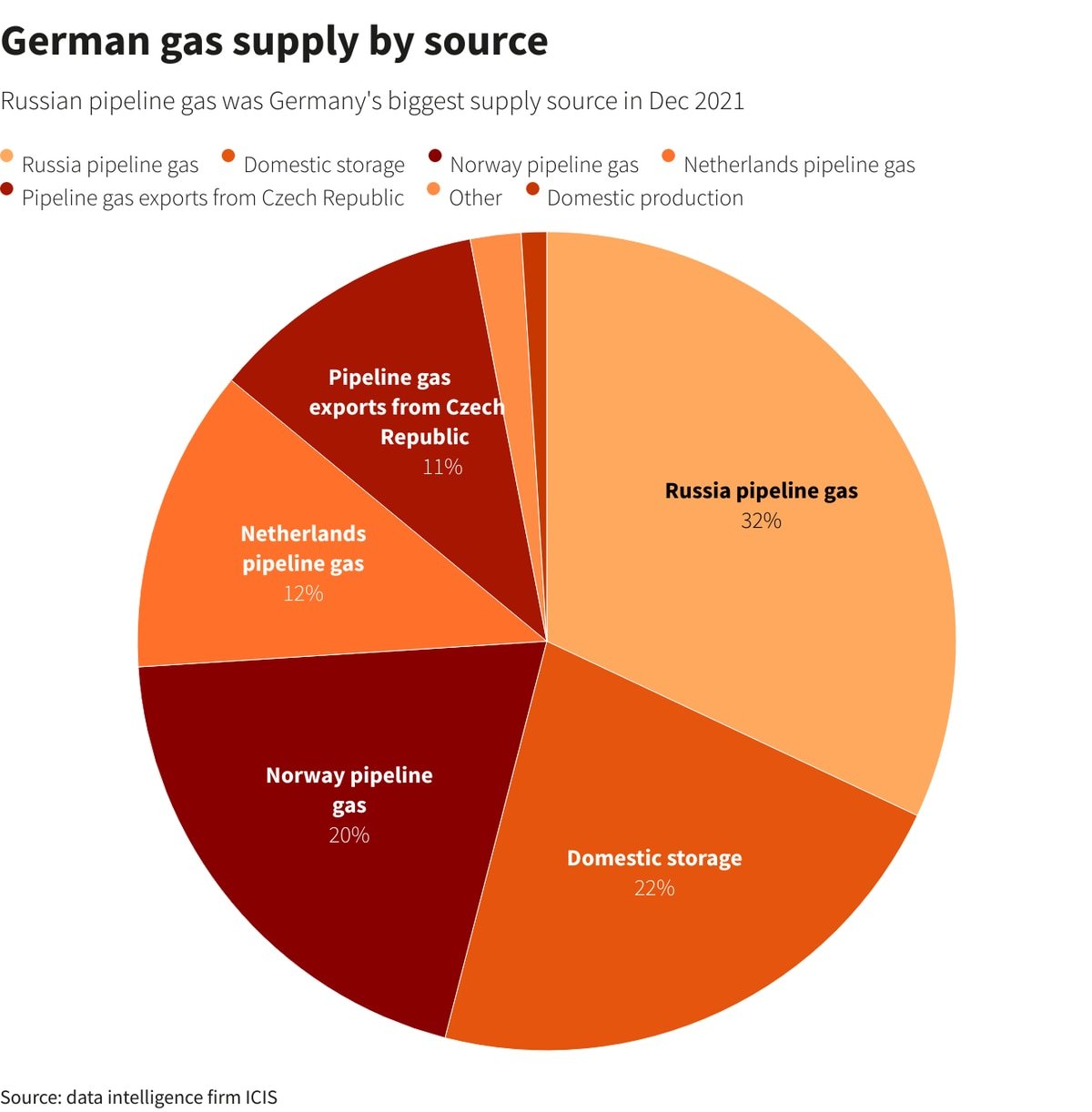How Russia’s Invasion forced germany to rebuild its energy Sector
Reuters Graphics
Germany has been making waves with its move to clean energy over the past few decades, setting an example to the world with its speedy transfer to a greener future. However, the sacrifices the country made to achieve clean energy have come at the price of self-reliance, an expense that has become apparent amid Russia’s invasion of Ukraine.
Shortly after the Fukushima Nuclear incident of 2011, the German public opinion shifted away from nuclear power, in fear of an incident of their own. Hearing of the public’s demand, the German government laid a plan to phase out their nuclear energy source by 2022. In 2012, nuclear power contributed to a quarter of Germany’s energy supply, according to the World Nuclear Association. However, taking out nuclear power meant that the energy had to come from somewhere else. Despite the large importance that rehualing the energy sector held, there were no plans to replace the energy that nuclear once accounted for.
Now nearly a decade since Germany’s nuclear phase-out plan’s conception, it is nearing completion. As of April 2022, only three of the original 17 nuclear pow- er plants are open, with the remaining to be closed by 2023. However, in the pro- cess, the transformation has left Germany even more dependent on fossil fuels, leaving them in a complicated position.
As of January 2022, 41 per cent of Germany’s energy originated from renewable sources, with fossil fuels responsible for under 45 per cent, according to BDEW’s annual report. The proportions appear good, with renewables on the rise, so where is the problem?
Germany’s current dilemma is not the energy they produce, but what it requires. Of Germany’s fossil fuel supplies, Russia supplies half of Germany’s natural gas and coal, along with a third of their oil. While fossil fuels are harmful to the environment, with Russia’s support, they’ve been an integral tool for transitioning Germany’s energy sector. In fact, before the invasion of Ukraine, Germany was planning to double-down on Russia’s supply, constructing Nord Stream 2, a 15 billion USD pipeline from Russia’s coast to Lubmin, Germany. Nord Stream 2 would have strengthened their natural gas infrastructure, but it meant relying heavily on one trade partner. This was a risk that Germany’s EU allies did not support, with fellow UN members such as the US and Norway encouraging Germany to step away. Germany listened, suspending the certification of the pipeline, despite its completion. However, with no additional plans to bolster its energy generation efforts, Germany is left in a delicate position.
However, following Russia’s invasion of Ukraine, escalating tensions between Russia and the EU have destabilized Germany’s position further. For many EU countries, the EU’s verbal and financial reactions to Russia’s invasion risked pushing Russia to cut their current fossil fuels supply, dropping Germany’s power generation drastically. Alongside their place in the sanctions against Russia, Germany has also reacted by putting the completed pipeline deal on hold, and is laying out plans to permanently end Russian fossil fuel imports. Cutting Russia’s exports would be a massive blow to Russia’s economy, as Germany is estimated to make up a quar ter of Russian exports. However, it would put significant stress on Germany’s economy too.
As Germany is forced to cut ties with Russian oil, gas, and coal, it is important to ask what set Germany down this path. Fossil fuel plants account for nearly half of Germany’s energy, with renewables accounting for the majority of the second half. However, both energy sources are fickle, with fossil fuel plants largely reliant on Russian exports, and renewable energy reliant on weather conditions. However, Germany was once in support of a source that was more reliable, cheaper, and cleaner than fossil fuels, a source that is slowing down production, despite its benefits. Nuclear power met Germany’s energy needs, yet Germany followed through with its Nuclear phase-out plan.
To support EU countries like Germany’s energy sectors, allies such as the United States are providing welcomed support for the EU’s energy grid. Providing supplies such as liquified natural gas for Germany along with other EU countries. However, outside help is only a temporary fix to offset any energy supply reductions. Fortunately, this situation will provide the EU with a need to rebuild its power grids to be more self-reliant and eco-friendly.
Along with other EU countries, Germany already leads in renewable energy, and Russian pressure could finish the conversion, making them the staple Green Country with self-reliance and stability, encouraging others such as Canada to follow.

